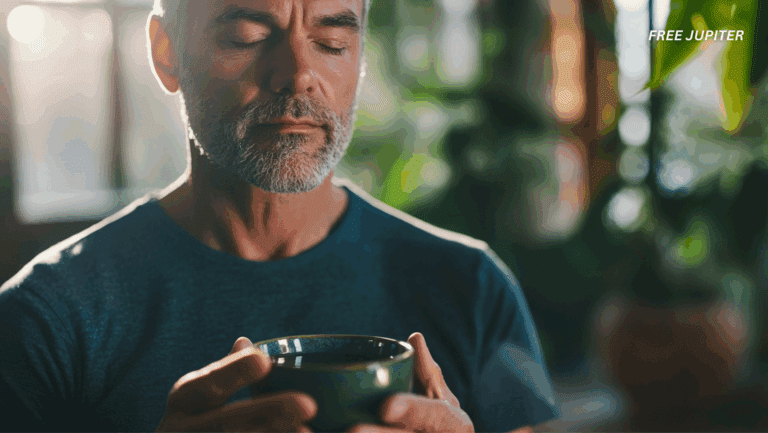In this busy, and sometimes overwhelming, world that we live in today, it is easy to feel as if stress is waiting around every turn. Turning on the news, or opening social media, is enough to send a wave of fear through you and make you just want to hide from it all. Anxiety, in large part, has become a shared response to the din of contemporary life and understandably so. Whether prompted by global events, individual struggles, or merely the stress of day-to-day demands, anxiety has become a persistent companion for millions.
In reality, anxiety disorders have increased to become the leading mental health disorder in the United States, impacting more than 40 million adults annually. Political turmoil, the pandemic, and continued economic instability have only served to fuel this escalating mental health epidemic. Yet, although anxiety can be extremely isolating, the reality is that you are by no means alone.
“Anxiety, in some form or another, is something that many people experience — it’s more prevalent than you might realize,” says Dr. Rachel Goldman, clinical assistant professor of psychiatry at NYU Grossman School of Medicine. She has a holistic perspective on mental health and stresses that, although professional therapy and medication are usually necessary for more severe instances, there are also a number of natural, home-based techniques that can provide relief, particularly for those dealing with mild or situational anxiety.
Following are the experts in the mental health community’s best recommendations for natural ways to calm anxiety and facilitate a sense of greater calm.
Understanding Anxiety
Deep down, anxiety is not necessarily bad. It’s an evolutionary mechanism — a system that kept our ancestors on their toes and aware of danger. But when worry crosses the line from occasional to constant or begins to get in the way of day-to-day functioning, it could be a sign of a more severe type of anxiety. High-functioning anxiety, while less obvious, can still present as chronic muscle tension, irritability, stomach issues, insomnia, and even full-blown panic attacks.
Luckily, there are numerous techniques that can assist in returning your mind and body to balance — from gentle lifestyle changes to calming herbal aids.
Read more: Panic Attacks And Anxiety Have Been Linked To Certain Vitamin And Mineral Deficiencies
Natural Ways to Alleviate Anxiety
1. Create a Consistent Daily Routine
Having a disorganized schedule can heighten levels of stress. Structure provides a sense of control, and this is extremely grounding when anxiety arises, explains Dr. Goldman. She urges patients to take stock of their daily rhythms in four areas: sleep, diet, exercise, and managing stress.
Placing high importance on a whole night’s sleep, a healthy and balanced diet, physical activity in the daily routine, and quiet time for mindfulness or relaxation can collectively decrease anxiety levels over a period of time.
2. Adopt Deep Breathing Techniques
Breathing is something we all do unconsciously, but it is the key to soothing the body and mind. Studies released in 2023 have shown that conscious breathing exercises can dramatically reduce sensations of panic and tension by stabilizing heart rate and lowering blood pressure.
One technique favored by Dr. Goldman is the 5-finger breathing method, ideal even for children. It involves tracing the outline of one hand with the other — breathing in while tracing up each finger and exhaling while tracing down. Other options include box breathing, the three-part breath, and yogic pranayama methods.
3. Support Gut Health
The link between gut health and mental health is increasingly recognized. In 2024, a study reinforced the fact that the gut microbiome is essential in controlling brain function and neurotransmitter activity, which has direct implications for mood and levels of anxiety.
To cultivate your gut, concentrate on fiber-rich foods like vegetables, fruits, beans, nuts, and whole grains. Hydration and adding probiotic-rich foods like yogurt, kefir, kimchi, and sauerkraut can also assist with this important brain-gut connection, says Dr. BreAnna Guan, a licensed naturopathic doctor.
Read more: Study Says That Crows Can Hold A Grudge For Up To 17 Years
4. Move Your Body Regularly
Exercise is still one of the most effective methods for coping with anxiety. But that doesn’t imply punishing exercise sessions. Gentle activities like walking, dancing, hiking, or cycling can all release mood-enhancing endorphins and enhance emotional strength.
Spending time outside can enhance the effects, as exposure to nature has been shown to reduce cortisol levels and promote feelings of relaxation and belonging.
5. Drink Soothing Chamomile Tea
Chamomile, the classic herbal remedy, has been linked to relaxation and stress relief for centuries. Clinical research indicates that chamomile can alleviate anxiety symptoms in individuals both with diagnosed conditions and those coping with everyday stress.
Drinking a soothing cup of chamomile tea at bedtime or in times of tension can be comforting and calming.
6. Tap into the Potential of Lavender and Adaptogenic Herbs
Lavender naturally has a calming scent, which is why it’s added to so many sleep products and baby care products. Dr. Guan recommends adding food-grade lavender to smoothies or diffusing lavender essential oil at night to create a restful mood.
Other herbs, like ashwagandha and schisandra berry, can also aid the body’s stress response by balancing cortisol levels. These adaptogens can be taken in capsule, tea, or powdered form added to beverages. Ashwagandha, in fact, has become popular for its soothing balancing effects without being overstimulating.
7. Write It All Down
Journaling provides an emotional release from worrisome thoughts. A formal gratitude journal or a loose “brain dump” can free up mental debris and clarify issues.
“Don’t worry about coherence or grammar,” advises Dr. Goldman. “Just let the thoughts flow. Often, ruminating thoughts lose their hold once they’re on paper.” For extra reassurance, use daily prompts as a guide to your journaling practice.
8. Use the 3-3-3 Grounding Technique
When worry tugs your mind into worry spirals, grounding activities can steer your focus to the here and now. A basic yet potent technique is the 3-3-3 rule: find one thing you can see, one thing you can hear, and one thing you can touch.
This exercise engages the senses and anchors you to the moment, and it is particularly useful when under extreme stress.
Read more: These Are the 9 Healthiest Nuts To Include In Your Diet, According to Experts
9. Redirect Focus With Distraction
At times, the fastest way to dispel anxiety is to shift topics in your head. Listening to a humorous podcast, viewing a hilarious video, or even reading an engaging book can serve as a temporary relief and provide your nervous system with a respite.
The objective isn’t to avoid, but to provide the brain with another channel to diffuse stored tension.
10. Increase Magnesium Intake
Magnesium is an important mineral for soothing the nervous system, but it is short in many people’s daily diets. Deficiency may result in increased sensitivity to stress and poor quality sleep. Natural sources of magnesium include green leafy vegetables, legumes, seeds, and nuts.
In cases where dietary intake is low, supplements become a viable alternative. Just be sure to get the advice of a healthcare practitioner before beginning a new supplement regimen.
11. Wrap Yourself in a Weighted Blanket
Weighted blankets have been gaining popularity due to their power to deliver deep pressure stimulation, which has been associated with the release of serotonin — a mood-elevating and soothing neurotransmitter. Dr. Goldman compares their effect to getting a soothing hug.
Even hugging a pet can trigger a similar grounding effect.
12. Practice Meditation
While the thought of sitting quietly might be intimidating to some, meditation can be incredibly rejuvenating. From guided meditations and breathing sessions to active meditations such as yoga or tai chi, there are many ways to be mindful.
Even a few minutes a day can have a real impact on emotional control and stress relief.
13. Try a Cold Water Reset
Cold exposure is not just a self-care trend science indicates it triggers the parasympathetic nervous system and releases dopamine and other positive chemicals. If an entire cold plunge feels overwhelming, begin slowly: splash water on your face or hold a cube of ice in your hand.
This minor shock can break the cycle of anxiety and rebalance your body’s stress reaction.
14. Hum to Calm Your System
Humming, it appears, isn’t only for whiling away the hours. It can stimulate the vagus nerve, a major component of the parasympathetic system, which slows down the heart rate and encourages relaxation. Initial research suggests that humming could enhance concentration and sleep and reduce anxiety.
The next time you’re stressed out, hum a tune you like and observe the relaxing effect.
When to Get Professional Assistance
Although these natural treatments can offer considerable relief, there are some instances when extra help is necessary. If anxiety starts to interfere with your work, relationships, or general capacity to function, it’s essential to talk to a licensed mental health professional.
“Lifestyle adjustments can be beneficial for low-grade anxiety, but should the symptoms begin to intrude on your daily life, professional intervention tends to be required,” Dr. Guan says. Certain medications can be taken on an as-required basis, which may suit those wary of long-term treatment programs.
Early intervention is also stressed by Dr. Goldman. “Therapy and medication can be life-changing. The sooner you address anxiety, the easier it becomes to manage.“
In a world where stress feels almost constant, learning to manage anxiety naturally can offer a sense of empowerment. Whether it’s through nourishing your body, focusing your mind, or finding moments of calm throughout the day, these techniques remind us that even in the most chaotic times, peace is still possible and often just a breath, a cup of tea, or a quiet walk away.









